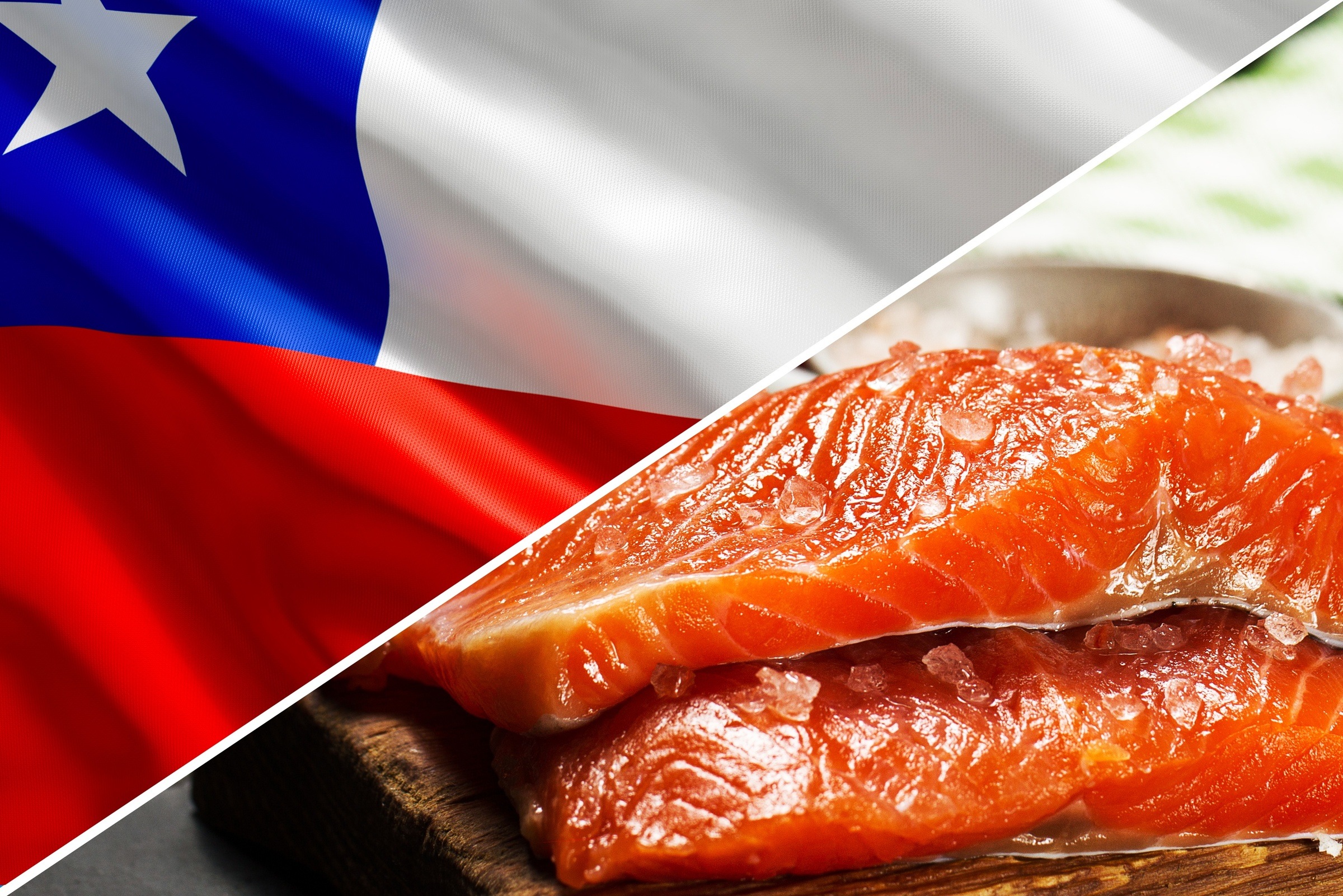RIO DE JANEIRO, BRAZIL – Seafood Watch, a program of the Monterey Bay Aquarium that studies the conditions under which salmon farms operate around the world, has given salmon production in Chile a red mark. Their recent report was terse to the Chilean industry and recommended that international markets not consume most salmon farmed in Chile.
The study warns that Atlantic salmon, the most widely produced species in Chile, remains in the “to avoid” category for salmon farmed in Los Lagos and Aysén because “the high use of antibiotics and pesticides to control diseases and sea lice is of great concern.”
Read also: Check out our coverage on Chile
It should be noted that Atlantic salmon, farmed in both regions, accounts for 59% of total national salmonid production.

CRITICISM
The marine conservation organization Oceana pointed out that the report underscores the urgent need to pass the bill, which calls for greater transparency in the use of antibiotics and other chemicals by all companies operating in Chile as soon as possible.
Liesbeth van der Meer, director of the organization, said that “for years, companies have resisted making transparent this data, which is of the utmost importance for evaluating the management of a company’s facilities,” and noted that “the bill has inexplicably gotten stuck in its final process and we are still waiting for it to be submitted to the Senate for a vote and become law before the end of this legislative term.”
Seafood Watch warns that the extensive use of antibiotics in Atlantic salmon production likely contributes to more excellent bacterial resistance. The drugs used by Chilean salmon farms are considered by the World Health Organization (WHO) to be very important for human medicine.
ENVIRONMENTAL DAMAGE DUE TO SPILLS
The Monterey Bay Aquarium-led report, which the organization publishes every five years, details growing concerns about massive salmon escapes from Chilean farms, particularly coho salmon, which appear to be becoming established in the wild and expanding their range.
“Southern Chile has unique ecosystems with a high degree of endemism and some endangered or threatened species,” the report states, adding that these escapes increase impacts on endemic species given the predatory nature of this salmon.
“The bill, which we hope will be voted on later this month, provides for a new salmon escape regulation that would impose effective penalties for any event, thus preventing escapes of salmon that have a serious impact on the environment,” van der Meer said.
Finally, the NGO said that salmon farms show their worst side in international markets with this report.
“Salmon farming is by far the activity that uses the most antibiotics in Chile, bacterial resistance is a global problem, and it should be the same industry that cares to make this data transparent,” said the director of Oceana, pointing out that “in this way, international markets would not be closed. As was the case in Europe, but we see that this is not of interest to the companies, as they continue to systematically refuse to make the information available by pursuing litigation for more than four years against every request we have made from our organization.”

